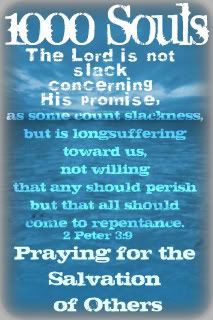
"One day when Jacob was cooking some stew, Esau arrived
home exhausted and hungry from a hunt. Esau said to Jacob,
"I'm starved! Give me some of that red stew you've made."
(This was how Esau got his other name, Edom - "Red.") Jacob
replied, "All right, but trade me your birthright for it."
"Look, I'm dying of starvation!" said Esau. "What good is my
birthright to me now?" So Jacob insisted, "Well then, swear
to me right now that it is mine." So Esau swore an oath,
thereby selling all his rights as the firstborn to his younger
brother. Then Jacob gave Esau some bread and lentil stew. Esau
ate and drank and went on about his business, indifferent to
the fact that he had given up his birthright"
(Genesis 25:29-34, NLT).
How many of you have made bad decisions in your life? It
may have been five, ten or even twenty years ago and you are
still paying for them. A decision that took only moments to
make ends up costing you years of your life trying to recover
from it. It may have been a financial, marital, relational or
occupational decision that has shaped your world as it exists
today. One thing is for sure: If you knew then, what you know
now, you would have chosen differently.
For some of you, one bad decision has kept you from experiencing
the fullness and purpose that God has for you in your life. However,
bad decisions do not have to be fatal - they can also be formative.
One of the most difficult but necessary skills we must develop
in life is how to make decisions. When we make the best
decisions, we gain ground. When we make good decisions, we
maintain ground. However, when we make bad decisions, we lose
ground and oftentimes much more. There is no formula that can
be applied to every situation that will enable us to avoid making
bad decisions. However, the Bible does contain principles that
can be applied to our situations to enable us to make the best
decisions possible considering our circumstances.
In Genesis chapter 25, the Bible presents us with a situation in
which Esau makes a bad decision. Not only does his decision
impact his life, but the lives of generations to come. If Esau
where here today, I believe he would give the following advise:
1. Never make a decision while needy. "Esau
arrived home exhausted and hungry from a hunt. Esau said to Jacob,
"I'm starved! Give me some of that red stew you've made" (verse 29-30).
A man could sell a thirsty man a glass of water for all he owns.
This actually happened when Joseph was placed over Egypt during
the great famine. People came from far and near giving him all
their money, land and the right to 20% of their future produce.
"Need" clouds our vision and ability to make sound decisions.
Whenever we make decisions in the midst of a crisis, or ones that
are based on need, it will more than likely be shortsighted
decisions and will end up costing us disproportionately more than
what we received.
2. Never allow anyone to make you decide "now" on
something that can wait. "Jacob replied, "All right, but trade me
your birthright for it." (verse 31).
There are very few decisions in life that need to be made right now
on the spot. Often, by waiting and praying prior to making a
decision, we can more fully take into consideration the totality of
our situation and the consequences of making the decision. If
someone tries to pressure you into making a decision right now
about something that doesn't require an immediate decision, you
will more than likely regret the decision.
3. Avoid empowering or exaggerating your need.
Jacob replied, "All right, but trade me your birthright for it."
"Look, I'm dying of starvation!" said Esau. "What good is my
birthright to me now?"
Often, we become victim to pressure because we exaggerate or
create a need that does not exist. Esau was not dying - he was
merely hungry. His exaggerated perception of his situation, paved
the way for him to lose what was most valuable to him. We know
that the birthright was important to him because in the Book of
Hebrews we are told that he sought after it with great weeping
(Hebrews 12:17).
4. Never exchange something enduring for something
temporary. "Then Jacob gave Esau some bread and lentil stew. Esau
ate and drank and went on about his business, indifferent to the
fact that he had given up his birthright"
When Esau finished eating his stew, the fact remained, that he would
become hungry again, but Jacob now owned an enduring blessing and
birthright. Decisions that are made based on your flesh will more
than likely be bad ones. These decisions generally momentary
satisfy, but have long-term consequences.
Short sighted and quick decisions are a major means by which the
enemy robs Believers of the blessings that God places in our lives.
Since God has given you authority over the enemy and his kingdom,
he must convince you to give him what he cannot take. He's been
using the same trick from the very beginning. It was a bad decision
that caused Adam and Eve to fall in the garden. Satan offered them
a piece of fruit for something eternal.
You may be struggling to overcome the consequences of bad
decisions made in your past and wondering how you can stop paying
interest on something that happened years ago. The answer is - by
making good, better and the best decisions now. It was a good
decision that empowered you to overcome the death Adam caused by
his fall. Make better decisions today and experience all God has
planned for your tomorrow!
By Dr. J.C. Matthews, Senior Pastor of Dunamis Life Ministries and
Chancellor of The International Kingdom Institute.


































No comments:
Post a Comment